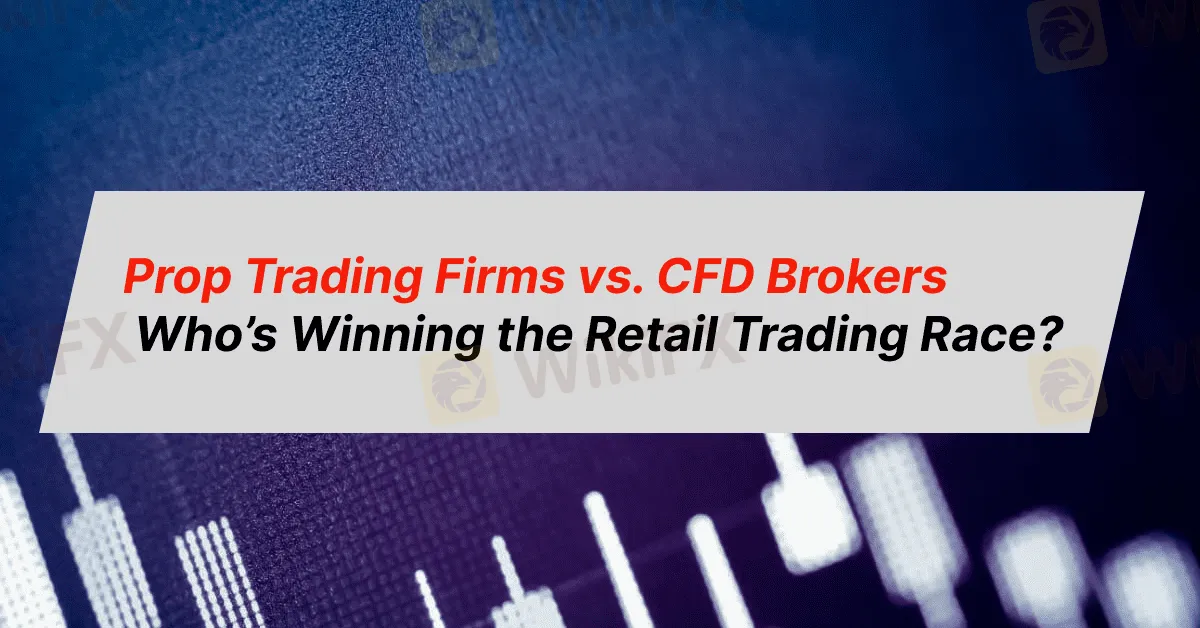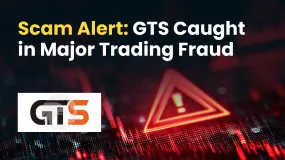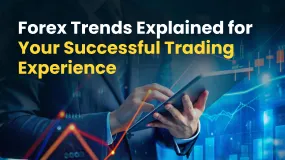简体中文
繁體中文
English
Pусский
日本語
ภาษาไทย
Tiếng Việt
Bahasa Indonesia
Español
हिन्दी
Filippiiniläinen
Français
Deutsch
Português
Türkçe
한국어
العربية
Prop Trading Firms vs. CFD Brokers: Who’s Winning the Retail Trading Race?
Abstract:In recent years, a new breed of retailer-focused trading firms has emerged: proprietary (prop) trading outfits that recruit individual traders to trade the firm’s capital under structured rules. Boasting low entry costs, clear risk parameters, and profit-sharing incentives, these prop firms are rapidly winning over retail traders, many of whom previously traded Contracts for Difference (CFDs) with established online brokers. As prop trading revenues accelerate, a key question arises: Are CFD brokers losing business to prop firms?

Introduction
In recent years, a new breed of retailer-focused trading firms has emerged: proprietary (prop) trading outfits that recruit individual traders to trade the firms capital under structured rules. Boasting low entry costs, clear risk parameters, and profit-sharing incentives, these prop firms are rapidly winning over retail traders, many of whom previously traded Contracts for Difference (CFDs) with established online brokers. As prop trading revenues accelerate, a key question arises: Are CFD brokers losing business to prop firms?
The Prop Firm Advantage
- Access to Firm Capital
Traditional CFD trading requires traders to deposit and risk their capital. Prop firms flip the model: after passing a modest “evaluation challenge,” traders earn the right to trade the firms funds. This all-but-eliminates personal financial risk, making the proposition especially attractive to new and risk-averse traders.
- Structured Risk Controls
Prop firms enforce clear rules on drawdowns, maximum position sizes, and daily loss limits. Traders learn disciplined risk management by necessity: violate the rules, and the account is closed. This hands-on education in preservation of capital fills a void left by many CFD brokers, who tend to focus more on platform features and less on trader education.
- Performance-Based Payouts
Instead of earning based on turnover or volume as with CFD brokers, prop traders split actual trading profits—often 70% or more—directly with the firm. For skilled traders, this arrangement can outpace typical CFD commission or spread-based earnings.
The Evidence: Prop Firms Are Growing Fast
- Challenge Sales Up 30% Annually
Charles Finkelstein, CEO of Upside Funding, reports that his firms internal data shows a roughly 30% year-over-year rise in challenge purchases. This metric serves as a proxy for new traders entering the prop trading ecosystem, and a potential red flag for CFD brokers relying on self-funded clients.
- Anecdotal Broker Feedback
Industry whispers and forum chatter suggest slumping new-account openings at mid-tier CFD brokers. While exact figures remain proprietary, several smaller brokers have privately complained of thinner pipelines as would-be clients gravitate toward the “no-deposit” allure of prop challenges.
Why CFD Brokers Are Feeling the Heat
- Market Saturation
The CFD space is crowded. Dozens of brokers—from global giants to niche outfits—vie for the same finite pool of retail traders. Differentiation increasingly rests on speed of execution, range of instruments, or gimmicky account tiers.
- Escalating Marketing Costs
To stand out, brokers must spend heavily on online ads, sponsorships, and affiliate programs. Traders receive sign-up bonuses, cashback offers, and “VIP” perks—often at the expense of broker profitability. Smaller players struggle to match the budgets of industry heavyweights.
- Trader Education Gap
While many CFD brokers provide webinars and tutorial articles, few enforce the disciplined, rule-based approach that prop firms embed in their evaluation process. This gap leaves self-funded traders vulnerable to rapid losses and frustration, pushing them toward the more guided prop model.
The Future of CFD Brokers: Adapt or Fade
To reclaim market share and remain relevant, CFD brokers should consider:
- Launching Funded-Account Programs
Mirror the prop-firm model by offering “funded accounts” to traders who demonstrate consistent profitability in simulated or small-live environments.
- Embedding Structured Risk Courses
Build in mandatory, gamified risk-management modules that reward traders for following best practices, reinforcing good habits before they trade sizable positions.
- Expanding Social & Copy-Trading Features
Create community-driven platforms where successful traders strategies can be followed (or “copied”), capturing some of the social engagement that prop firms foster.
- Diversifying Product Suites
Offer unique asset classes—cryptocurrency futures, ESG-focused CFDs, micro-options—to stand out from commoditized offerings and capture niche trader segments.
Conclusion
The rapid rise of prop trading firms has injected fresh competition into the retail trading world, capitalizing on the twin promises of zero personal-fund risk and structured, rules-based progression. CFD brokers—once the go-to for leveraged retail speculation—now face an industry makeover. By embracing innovation in account structures, education, and community features, they can fight back, ensuring that self-funded CFD trading remains a vibrant and profitable option for retail market participants.

Disclaimer:
The views in this article only represent the author's personal views, and do not constitute investment advice on this platform. This platform does not guarantee the accuracy, completeness and timeliness of the information in the article, and will not be liable for any loss caused by the use of or reliance on the information in the article.
Read more

Planning to Invest in Trade245? Read These Negative Trader Reviews First!
Setting your sights on Trade245? Think again! Traders are witnessing massive problems that extend beyond withdrawal denials. The issues include blown-up accounts due to trading manipulation, along with high spreads and commissions. As a result, traders witness only losses even when they are not supposed to. This has made the situation highly complicated for them. In this article, we have exposed Trade245 for its financially illicit acts. Read on!

Zerodha Scam: Investor Loses ₹3.5 Lakh ! Spot the Red Flags & Protect Yourself
Indian investor Maryam Khan, 35, was scammed out of nearly ₹35 Lakh in a fraudulent stock investment scheme orchestrated by individuals impersonating the legitimate financial firm Zerodha. The scam began when Khan came across a Facebook Reel on July 4 promoting fake investment opportunities. After contacting the WhatsApp number listed in the ad,

Scam Alert: GTS Caught in Major Trading Fraud
Have you been deceived by GTS officials? Has this forex broker prevented you from withdrawing funds? Unfortunately, you have been scammed! File a complaint with the authorities soon to recover your funds. Many have accused this forex broker of serious fraud allegations on several broker review platforms. Our WikiFX team found a massive number of trader complaints against this broker. In this article, we will share them with you.

Forex Trends Explained for Your Successful Trading Experience
The dynamism of the forex market is full of trends - positive, negative and neutral. As trade intensifies, the currency pairs get into the action mode with ups and downs, causing frequent changes to investor mindsets. The market is like a rollercoaster ride, thanks to forex trends. Understanding what these trends indicate will help you take necessary investment calls for sustained success.
WikiFX Broker
Latest News
ASIC Regulated Forex Brokers: A Comprehensive 2025 Guide
Is TradeEU Reliable in 2025?
Professional Forex Trading: Skills, Tools, & Strategies for Success
Investing in OnFin? Absurd Withdrawal Conditions & Trade Manipulation May Spoil Your Trading Mood
How Commodity Prices Affect Forex Correlation Charts
TopFX Launches Synthetic Indices Trading on cTrader Platform
Is CBCX a Safe and Trustworthy Broker for Traders?
Quotex Broker Review 2025: Is It a High-Risk Broker?
Top 5 Warning Signs- Why You Should Avoid MTrading Broker?
PrimeXBT Expands FSCA Licence and Enhances Crypto Services in 2025
Currency Calculator


